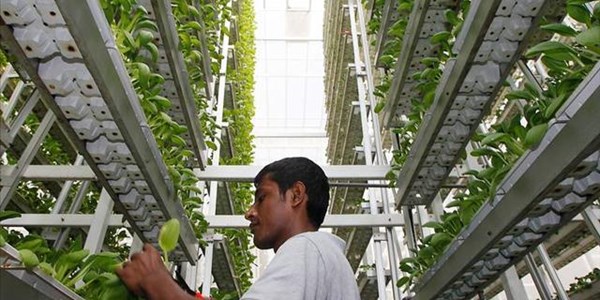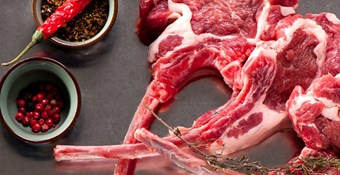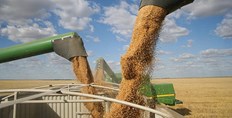Agriculture
Agri News Podcast: Vertical farming tackles food security─── 10:24 Thu, 18 Apr 2019

The African Association for Vertical Farming (AAVF) says although vertical farming is not the immediate solution to food security in South Africa, it does, however, offer an opportunity for people to take charge of their food requirements.
This was revealed at the recently held inaugural conference for vertical farming in Africa at the University of Johannesburg. According to the World Wide Fund for Nature, South Africa will have to produce 50% more food by 2050 to feed its ever-growing population. Veronica Aswani, an emerging vertical farmer, says as South Africa faces an impending food security crisis, vertical farming will form part of the solution to food security in future.
She says with the right support, expertise, implementation and respecting the cultural beliefs and integrity of African communities, vertical farming can turn great opportunities into engines of sustainable urban upliftment and food security in Africa. She added vertical farming is much needed as Africa is threatened by rapid urbanisation, resource scarcity, climate change, and dwindling infrastructure.
Aswani says vertical farming can be divided into two broad categories, green walls or living walls, both used mainly for decorative purposes, and vertical food crops in production systems which are also known as plant factories.
AND
The South African National Consumer Union (SANCU) warned on Wednesday that increasing tariffs on imported poultry products could hike local chicken prices by up to 32 percent. The South African Poultry Association (SAPA) - a lobby group which looks after the interests of large producers and whose members include RCL Foods, Astral Foods and Rainbow Chickens - has applied to the International Trade Administration Commission of South Africa (ITAC) for import tariffs on chicken to increase to 82 percent.
At a media briefing, SANCU and the Emerging Black Importers and Exporters South Africa (EBieSA) said this might put consumers under further financial strain and impact food security for the poor. Emerging Black Importers and Exporters chairperson, Unati Speirs, said SAPA's rationale was that imports were damaging the local industry, but said they believed the producers association only wanted to protect members' profits to the detriment of consumers and emerging black importers.
Speirs said claims by SAPA that imports would destroy local jobs were not true as thousands of jobs depended on both the import and export market.
OFM News/Michael Tlhakudi













